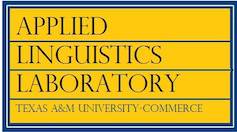Medical communication and advocacy through eye-tracking AAC: Implications for applied linguistics
DOI:
https://doi.org/10.21283/2376905X.15.1.266Keywords:
RETT SYNDROME, EYE TRACKING, AUGMENTATIVE AND ALTERNATIVE COMMUNICATION (AAC), DISABILITY, MEDICAL COMMUNICATIONAbstract
Historically, individuals with Rett syndrome, a rare neurodevelopmental disorder, have been cast as “silent angels,” “nonverbal,” and “speechless.” As a consequence, they have not been consulted in their medical care. Recently, however, augmentative and alternative communication (AAC) devices that use eye-tracking technology have facilitated communication for individuals with Rett syndrome. Yet, no prior research has investigated how such communication occurs within medical settings. Through an applied linguistics lens that centers the analysis of language use, we construct a case report capturing how Kalika, a child with Rett syndrome, offers medical information. Kalika’s device-mediated language use suggests multiple implications for applied linguistics scholars and language educators, including: broadening notions of speaking, increasing consideration of AAC, exploring more device-mediated language use, extending multimodal considerations, nuancing notions of communicative competence, presuming competence, and, last but not least, more deliberately espousing principles of linguistic justice in our field.
Downloads
Published
How to Cite
License
Copyright (c) 2022 Usree Bhattacharya

This work is licensed under a Creative Commons Attribution 4.0 International License.


